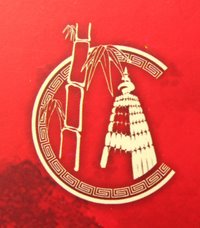October 13, 2015
Travails of Chinese-descent Indians
Stevan Wan, Yin Marsh & Micheal Cheng came down from various parts of the world to participate in the Kolkata programme. Photo: Special Arrangement
Six-year-old Michael Cheng’s world changed almost overnight as he and his family was picked-up in the middle of the night and dispatched to a “godforsaken” place in south-east Rajasthan.
The family of 13 had a roaring shoe and hotel business in the bustling hill-town, Darjeeling, when they were arrested in the winter of 1962.
The Cheng family was arrested, like many others, as a precautionary measure so that the Chinese-origin Indians could not come in aid of the rival, China, during or after the war of 1962 between the two Asian giants. After more than 50 years, Mr. Cheng – who turned 59 few months ago – is on his way to Darjeeling on Wednesday to see his home town.
Sitting in a tiny but popular eating joint, known for its authentic Cantonese cuisine in central Kolkata, Mr. Cheng explained how a war changes lives. “After 22 months in detention, a lorry with a few security personnel dropped me, my seven brothers, two sisters, parents and step mother there…” he pointed to a turn that leads to a by-lane in the bustling Central Avenue, “…the security chaps cautioned us that every time we go to Darjeeling we have to get our permit-paper stamped.”
In those two years, the Cheng’s business in Darjeeling disappeared and the family started making shoes in Kolkata which they were “forced to sell at Rs. five or 10, ” said Mr. Cheng, who now runs his own restaurant in North Carolina.
The family of 13 had a roaring shoe and hotel business in the bustling hill-town, Darjeeling, when they were arrested in the winter of 1962.
The Cheng family was arrested, like many others, as a precautionary measure so that the Chinese-origin Indians could not come in aid of the rival, China, during or after the war of 1962 between the two Asian giants. After more than 50 years, Mr. Cheng – who turned 59 few months ago – is on his way to Darjeeling on Wednesday to see his home town.
Sitting in a tiny but popular eating joint, known for its authentic Cantonese cuisine in central Kolkata, Mr. Cheng explained how a war changes lives. “After 22 months in detention, a lorry with a few security personnel dropped me, my seven brothers, two sisters, parents and step mother there…” he pointed to a turn that leads to a by-lane in the bustling Central Avenue, “…the security chaps cautioned us that every time we go to Darjeeling we have to get our permit-paper stamped.”
In those two years, the Cheng’s business in Darjeeling disappeared and the family started making shoes in Kolkata which they were “forced to sell at Rs. five or 10, ” said Mr. Cheng, who now runs his own restaurant in North Carolina.
“Second-class citizens”
“What was our fault, why were we displaced from Bengal when I and all my brothers were born in this State, how did the war matter to us…. I do not know but I lost more than two years of schooling and the family lost everything,” said Mr Cheng, who visited the city this week with many Chinese-descent Indians from across the world to mark 50 years of their internment. Mr. Cheng’s father came to Kolkata at the age of 14 in 1924 from Canton or today’s Guangzhou in south China. But after the war the entire family and its neighbours in central Kolkata turned in to “second-class citizens” as they were issued with “citizenship-permits.”
“Eventually all my brothers moved to the United States or Canada as many were born before 1950 and denied Indian citizenship,” Mr. Cheng said. It was not his problem as he was born in the “mid-50s.” But many Chinese-descent people, who were born in Bengal before 1950, are yet to receive their citizenship like half of Cheng family. Thousands like Mr. Cheng were huddled from their homes and sent to Deoli Detention centre at the height of India-China war.
Yin Marsh, who was 13 at the time of internment, has lot of memories of the detention camp. She describes people like her as the “last generation of the survivors of Deoli” and said that this small chapter of vast history of India needs to be told.
Ms. Marsh feels that the Chinese community in Kolkata should be more vocal about the issue. “This would help them gain trust and make them feel safer and better,” said Ms. Marsh, whose book on the subject will soon be published by an Indian publisher.
“Three months after I saluted the national flag and sang the national anthem on August 15, I was arrested on November 19, 1962 and had to stay in detention camp for two years,” said Toronto-based John Liao. Chinese-Indian Association had invited the ‘Indians’ to the city to speak about their experiences of the internment.
“This issue is very close to the heart of the Chinese Indian community. It will soon be forgotten if those who have experienced it does not talk about it,” Bean Ching (Binny) Law, president of Chinese Indian Association told The Hindu. All the detainees in the camp rue the fact that the Indian government still does not acknowledge the detention. Just an apology, even after so many years, they say, would be “very comforting.”
Shiv Sahay Singh
Suvojit Bagchi


3 comments:
Nice post. People who are really concerned about their health may take help from the free advertising online so as to make it more popular and amazing. Hope so that this will help us in making your business more profitable.
jordan shoes
jordan shoes
lebron shoes
kd 11
kyrie 6 shoes
curry 4
curry 7
hermes online
converse outlet store
balenciaga sneakers
curry 7
golden goose shoes
bape
bapesta shoes
off white clothing
bape
kd13
golden goose
yeezy
golden goose
Post a Comment